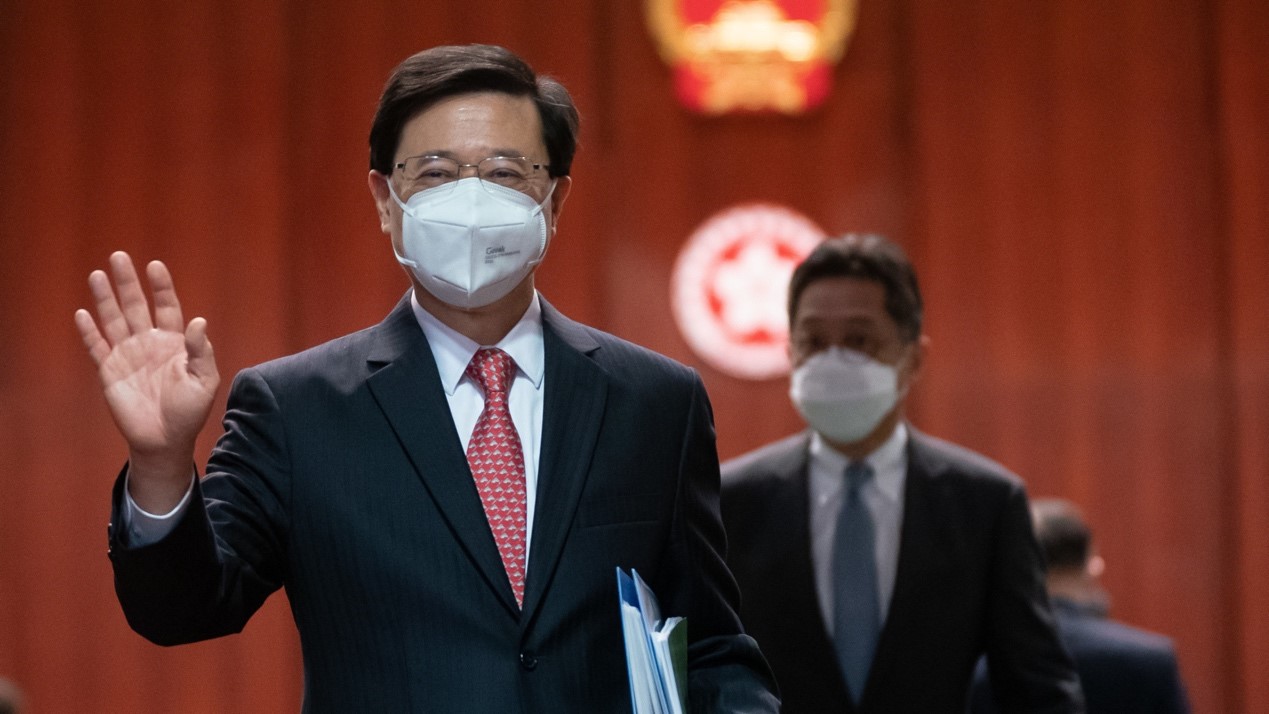Widgetized Section
Go to Admin » Appearance » Widgets » and move Gabfire Widget: Social into that MastheadOverlay zone
Hong Kong has amended laws to bar foreign lawyers from taking part in National security cases
Hong Kong amended a law on Wednesday (May 10) that bars foreign lawyers from taking part in national security cases unless they have written permission from the chief executive.
The amendment is the latest major legal and political change in the international financial center. China has worked hard to weed out dissenting voices in Hong Kong following mass pro-democracy protests in 2019.

Hong Kong has been praised for its common law tradition of allowing international lawyers to take part in cases.
But after the National Security law came into force in 2020, the Hong Kong government said the involvement of foreign lawyers in cases posed “potential risks”.
Hong Kong’s Secretary for Justice Lam Ting-kwok said on Wednesday that the right of Hong Kong residents to choose a lawyer is the right to choose lawyers or barristers who are fully qualified to practice in Hong Kong as legal representatives, but does not include overseas lawyers who are not fully qualified to practice in Hong Kong.
An amendment to the Legal Practitioners Ordinance passed by Hong Kong’s Legislative Council on Wednesday stipulates that overseas lawyers will be allowed to participate in national security law cases only after a certificate from the chief executive is “not contrary to the interests of national security”.
The law change follows the High Court’s earlier approval for Mr. Lai to retain British barrister Tim Owen to defend his case on the Hong Kong National Security Act.
Mr. Lai is one of Hong Kong’s best-known democracy activists. In August 2021, he and six former executives of Next Media were charged with “conspiring to collude with a foreign power” to violate national security laws. Lai has been in custody ever since. That year, Mr. Lai’s Apple Daily announced its closure after Hong Kong authorities froze its funds under new security laws.
Foreign lawyers have long been available to both prosecutors and defence in Hong Kong. A panel of three senior judges at Hong Kong’s Court of Final Appeal in November rejected the government’s bid to block Mr Owen from representing Mr Lai. The Hong Kong Department of Justice then applied for the case to be deferred pending the interpretation of the law by the Standing Committee of the National People’s Congress, which was approved by the High Court.
In December, the Standing Committee of China’s National People’s Congress gave Hong Kong’s chief executive, Li Jiachao, the power to block foreign lawyers from taking part in cases involving national security, overturning a previous ruling by the city’s high court. Owen’s application for a work visa extension has also been held up by the immigration department.
Lawmaker Lam Shin-keung said Wednesday he was disappointed that the amendment would allow foreign lawyers to apply for exceptions to participate in national security law cases. “To be kind to our enemies is to be cruel to ourselves,” he told the Legislative Council.
Mr. Lai’s legal team argued that the government’s actions violated his rights and contested the charges against him under the National Security Act.
The legal team has also filed a complaint with Hong Kong’s National Security Council and the city’s immigration Department over the rejection of Mr Owen’s work visa extension.
Both cases have been heard and are awaiting a decision.

